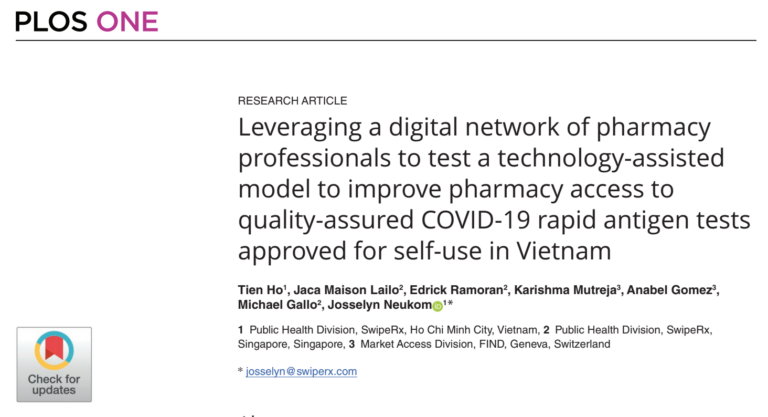Diabetes afflicts more than 25 million Southeast Asians today. As incidence of the disease grows across the region, healthcare systems face mounting pressures. Yet interventions designed for developed countries will have little impact in emerging markets like Indonesia, the Philippines, and Vietnam. To address the problem in places like these, healthcare organizations need better sources of data and solutions purpose-built for low-resource settings.
A new meta-analysis on worldwide diabetes trends published in The Lancet last week shows just how serious the problem is. The study, which was headed by the NCD Risk Factor Collaboration (NCD-RisC), found that 422 million adults around the world suffer from diabetes. In age-adjusted terms, this amounts to roughly 8.5% of the global population. Yet while some people still think of diabetes as a “Western disease,” more than three-quarters of diabetics live in low- and middle-income countries. In Southeast Asia, incidence of diabetes is comparable to that of the world at large.
High incidence translates to high disease burden, particularly in Southeast Asia’s four most populous countries—Indonesia, the Philippines, Thailand, and Vietnam—which together have over 500 million people. Indonesia alone has over 10 million diabetics, according to data from the data from the International Diabetes Federation (IDF), an NGO that does research and advocacy for diabetes care. According to IDF’s calculations, these numbers will grow drastically between now and 2040.
Making matters worse, more than 12 million adults in Southeast Asia don’t even know even have diabetes. Early interventions can stave off progression of the disease, and sometimes even reverse it completely. Yet many patients, unaware of their condition, wait until it’s too late and end up with chronic, late-stage diabetes, which is typically much more debilitating and expensive to treat.
So what to do about this growing epidemic? One of the first challenges is for healthcare organizations to get a better handle of the problem by going beyond broad population-level studies and seeking out more granular data. At mClinica, we’re working to provide just that kind of data. Our prescription datasets give insight on epidemiological trends, prescribing patterns, patient demographics, and supply chain dynamics for diabetes medicines in Southeast Asia. They help public and private stakeholders pursue more targeted interventions.
We also provide solutions for directly managing those interventions. One of those solutions is ConnectData, a patient engagement platform that uses mobile messaging to promote better behaviors and adherence to treatment regimens. This solution leverages our digital pharmacy networks, which offer access to over 50 million patients across Southeast Asia.
Diabetes already imposes direct costs of over $825 billion per year on the global economy, according to the NCD-RisC report. An outsize portion of those costs are borne by emerging markets like Indonesia and Vietnam, where healthcare systems are already strained. We’re working with both public and private healthcare organizations to address this problem. If you’re interested in learning more about our data and patient engagement platforms, please contact us to find out more.

SwipeRx Partners with the Drugstores Association of the Philippines and CPhAD at Annual Convention
✨ SwipeRx is thrilled to have participated in the recently concluded 26th Annual Drugstores Association of the Philippines (DSAP) Convention last March 26-28, 2025 as









